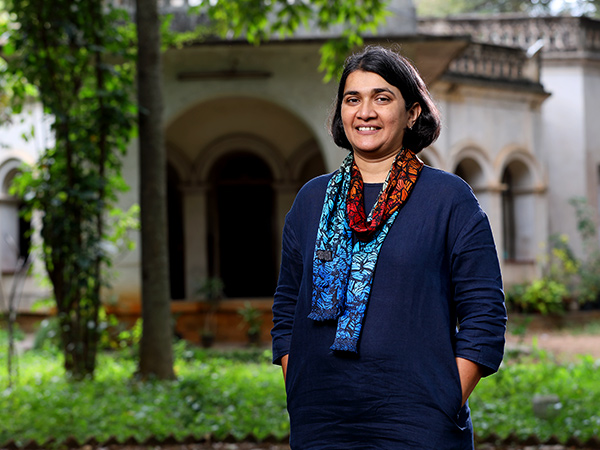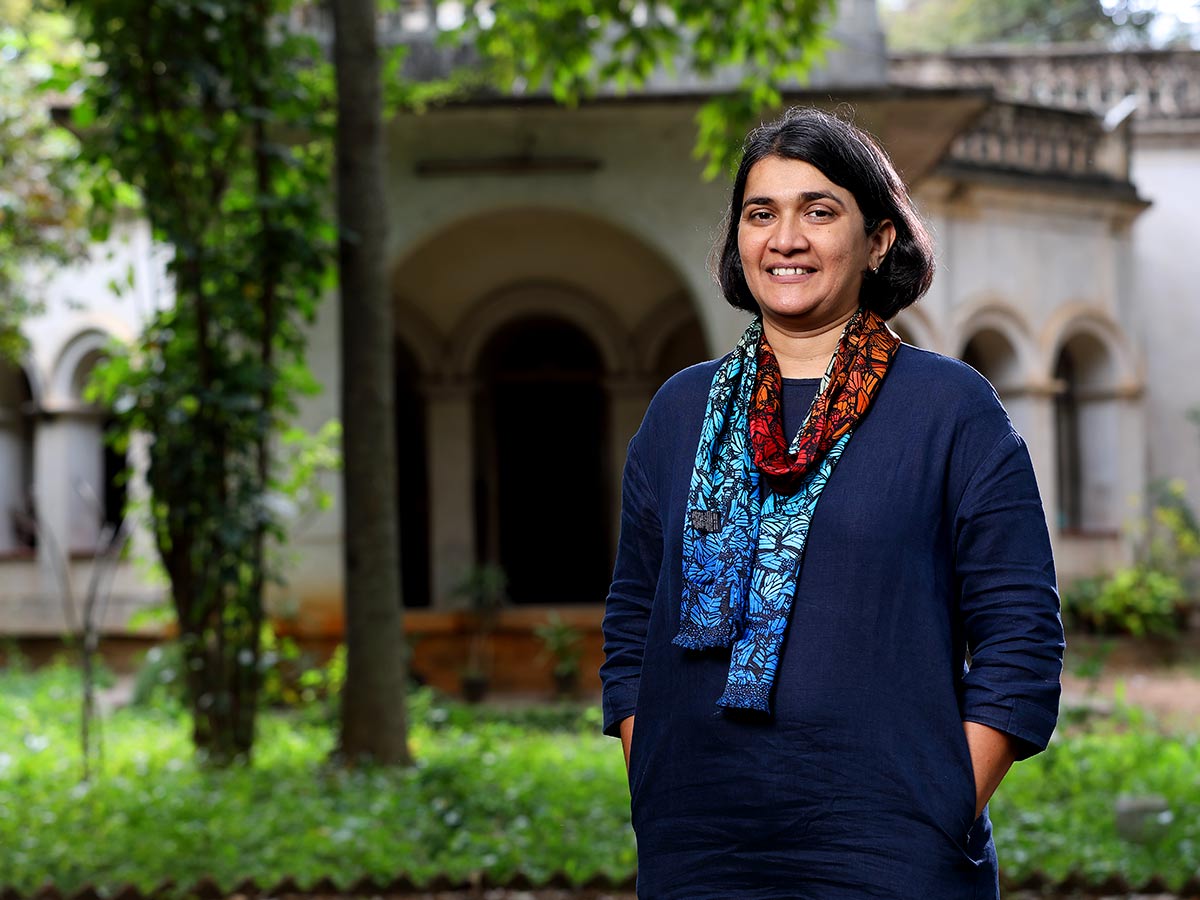The Infosys Prize 2023 in Humanities is awarded to the historian Dr. Jahnavi Phalkey for her brilliant and granular insights into the individual, institutional, and material histories of scientific research in modern India. Her book The Atomic State (Permanent Black, 2013) and many articles insightfully braid the global history of science, especially nuclear science, with the anthropology of the postcolonial state to illuminate rich and textured histories of the everyday lives of science in India.
Infographic:
Science does not happen in isolation
Scope and Impact of Work
Dr. Jahnavi Phalkey’s history of nuclear science research in twentieth-century India has creatively extended the scope of the global history of science to postcolonial contexts. It has productively shifted attention beyond the atomic bomb as a moment of postcolonial arrival for nation-states like India and Pakistan to reveal the complex institutional and material edifice of nuclear science research, and scientific research more broadly. The quality of her archival knowledge and research on these subjects is without peer. Her brilliant anthropology of science has emphasized the need to see the history of science as much a history of scientific ideas, as one of power, practice, and the nation-state. Dr. Phalkey’s ongoing scholarship also emphasizes that the trajectories of the natural sciences, social sciences and humanities—from physics and nuclear science to the development of statistics and sampling, and the vocabularies therein—are an inextricably joint narrative of individual genius, institutional structures, and state policy; and she extends her canvas, in comparativist vein, from India to China.
Jahnavi Phalkey has skilfully marshalled these insights from her monograph and scholarly articles to boldly and passionately reimagine spaces and modes through which science can be communicated with the wider public. Her documentary film Cyclotron (2020) tells the story of the longest-running particle accelerator in India and the scientists who have worked with it. Underlying the creative exhibitions and activities she has organized as the Founding Director of Science Gallery Bengaluru is the vision of explaining to the wider public how complex science works. This vision sees the dissemination of science and the humanities together in order to critically root the histories and contemporary everyday practice of science and rationality in empirical practice and theoretical rigor, at a time when they are under obscurantist threat everywhere.
Bio
Dr. Jahnavi Phalkey is a highly accomplished historian of science and technology, filmmaker, and curator. She is currently the Founding Director of Science Gallery Bengaluru. Dr. Phalkey did her B.A. at Elphinstone College and got her M.A. from Bombay University with a gold medal (1995). After an M.Sc. in the Politics of Asia and Africa (1996) from the School of Oriental and African Studies, University of London, she completed her Ph.D. in the History of Science and Technology from the Georgia Institute of Technology (2007). Jahnavi Phalkey was formerly Senior Lecturer in History of Science and Technology at King's College London (2011 – 2018) and a Fellow at the Wissenschaftskolleg zu Berlin (2013-14) and has held numerous other visiting appointments and fellowships. Her major work is the celebrated book, Atomic State: Big Science in Twentieth Century India Science, History, and Modern India (2013) She is also the co-editor of Key Concepts in Modern Indian Studies (2015) and the director of the documentary film Cyclotron (2020).
Timeline
Jury Citation
The Infosys Prize 2023 in Humanities is awarded to Dr. Jahnavi Phalkey for her brilliant insights into the individual, institutional, and material histories of scientific research in modern India. Her book The Atomic State: Big Science in Twentieth Century India (Permanent Black, 2013), on the rise of nuclear science research in India, tells a deeply researched, methodologically innovative, and passionate story of institutions, individuals, and the state. It highlights how people, instruments, and ideas across local, national and transnational flows developed the edifice of scientific research in twentieth-century India. Dr. Phalkey skillfully braids the global history of science with the anthropology of the postcolonial state to reveal textured histories and everyday lives of science in postcolonial countries like India. Her revealingly granular scholarship illuminates the interface between technology, bureaucracy, educational policy and equitable access, revealing both macro and micro processes of knowledge production.

Jahnavi Phalkey
My warm congratulations to Jahnavi Phalkey for winning the Infosys Prize 2023 in Humanities, awarded to her for her brilliant history of the making of nuclear science in modern India that brings together individual narratives of ambition, effort, failure, and resilience with the institutional a structures and state policy in which they are necessarily embedded; and critically excavates the human and material realm within which the history and contemporary practice of scientific research has taken place in India. Her pathbreaking scholarship is absolutely essential reading for scholars of knowledge production in India and beyond.



